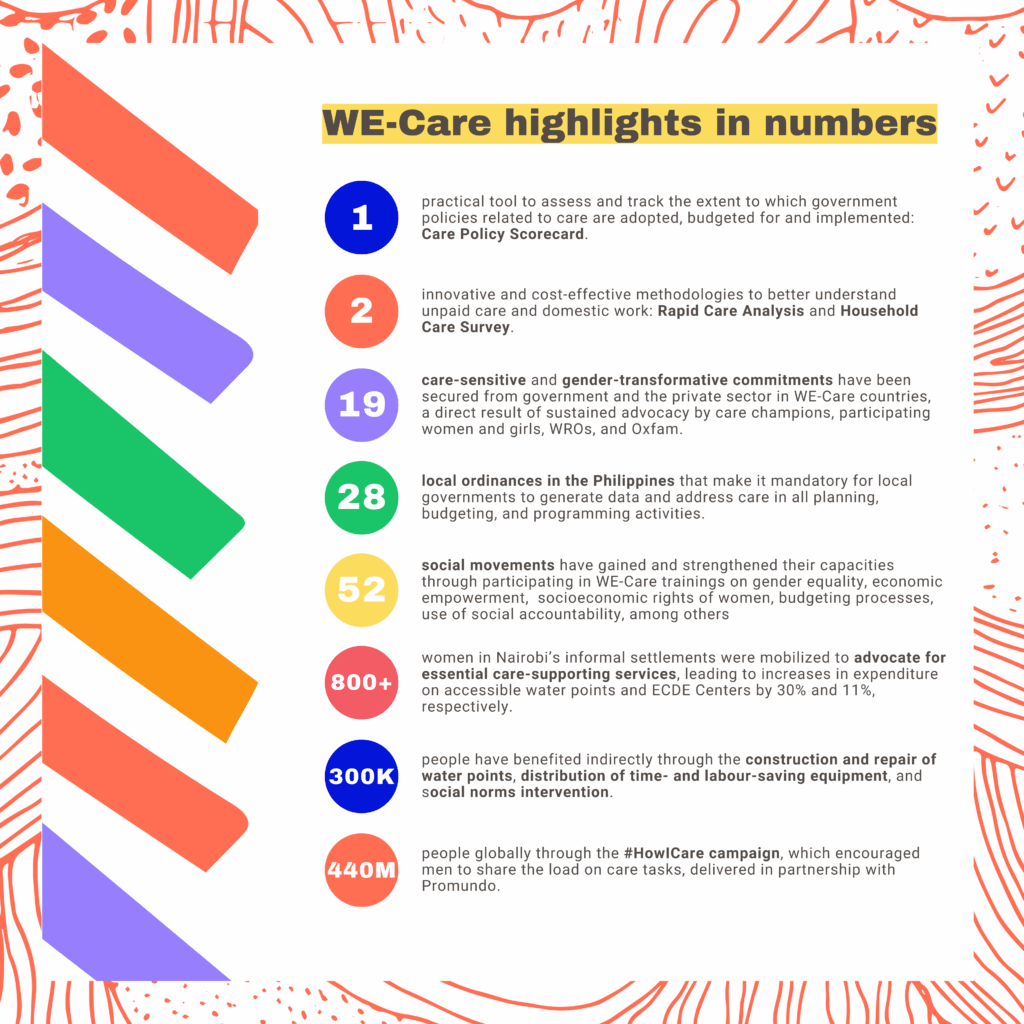Our Current Phase
WE-Care’s Impact Statement: Women and girls in Africa—especially in Kenya, Uganda, Ethiopia, and Zimbabwe—have greater autonomy over their lives, through enhanced recognition, redistribution, reduction, reward, and representation of their paid and unpaid care and domestic work, and as a result live their lives to the fullest and enjoy better social, economic, political, and cultural benefits and protection.
Our goals
The fifth phase of the WE-Care Program runs from September 2023 to August 2026. Funded by the William and Flora Hewlett Foundation, this phase has increased focus on movement building, policy influencing, and women’s voice and agency. Specifically, we aim to:
- Strengthen capacity and skills of local, regional, and national social movements that are actively and collaboratively advocating for their individual and collective rights for a more equitable care infrastructure.
- Increase voice, agency, and economic empowerment of women and girls that are better able to advocate for their individual and collective rights for a more equitable and collective care economy.
- Strengthen capacities, explicit commitments, higher investments, and stronger policy frameworks by local and national governments and key private sector actors in relation to unpaid and underpaid work.
Our theory of change
To demonstrate sustainable change and impact, WE-Care sees value in influencing at the sub-national level as an entry point. This guarantees accelerated change and the ripple effects are felt at the national and regional levels.
The program believes in having different care champions in different spaces and sectors, who contribute to building an enabling environment in society for policy discussions on UCDW to be validated as a legitimate debate, supported by evidence and valued as a positive contribution to society.
WE-Care’s theory of change is embedded on evidence building and influencing (local-regional-global-local). Our experience has shown that if we mobilize decision makers with credible evidence, tailored to the problems they need to address and presented and communicated effectively, target audiences will integrate asks or evidence in their policies and in official documents or language.
Our story in numbers

